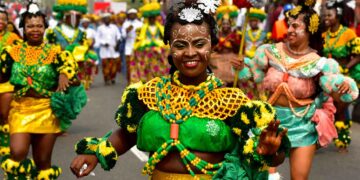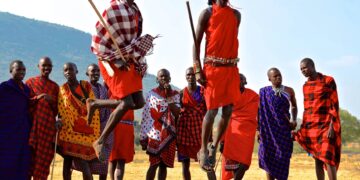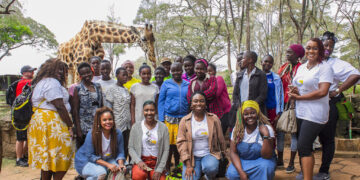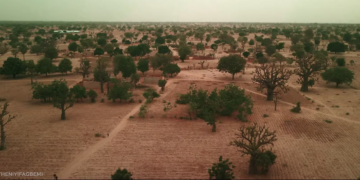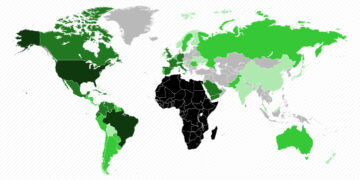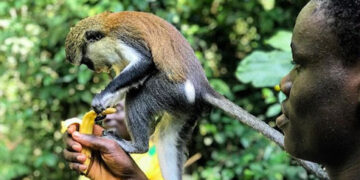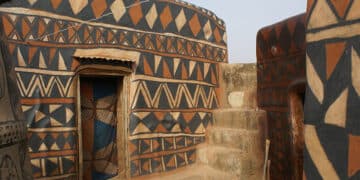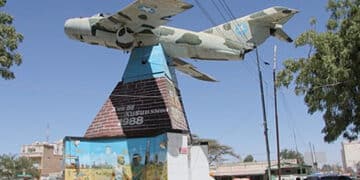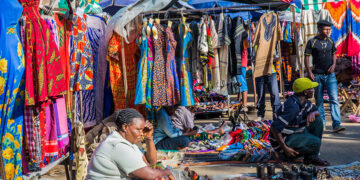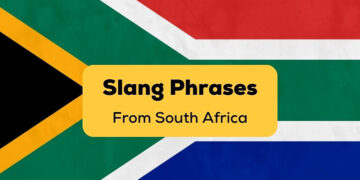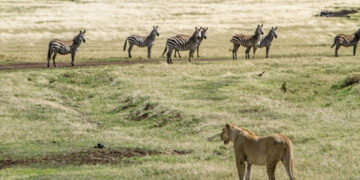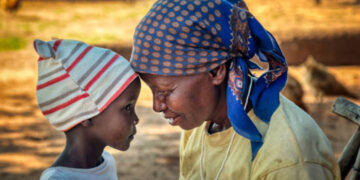African Soldiers fought for their colonial masters during WWI and WWII, but their contributions remain unrecognized, or if it all, are underrepresented. This article shines the spotlight on four (out of millions) African soldiers of the Second World War.
Over a million African troops marched alongside European soldiers during the First and Second World Wars. Unfortunately, the services of these soldiers have remained largely unrecognized.
The colonial governments they fought for deliberately undercompensated them—African ex-combatants received end-of-war bonuses that were about three times less than those of their white counterparts.
They also deliberately downplayed the contributions, recognizing that it could lead to post-war demands that would challenge their leadership as colonial rulers. They were right. The wartime experiences of these soldiers stirred many to join the independence movements in the country of their origins.
Today, many of the African WW II veterans are dead. However, the ones who are living, do so in obscurity—some remain unknown even within their home country, as no commemoratory events are held for them despite the observation of Remembrance Day in different countries.
How Africans Got Involved In Europe’s War.
During the World Wars, much of Africa was still under colonial rule. So even though both WWI and WWII were fought in Europe, colonial masters recruited youthful Africans and either shipped them to Europe or deployed them to protect European interests against opposing forces in their African colonies. Some soldiers took up arms willingly, and others were forcefully enlisted.
To some extent, African soldiers were disallowed from serving in front-line combat roles. Hence, most black soldiers served as porters, laborers, and medical aides, albeit at significant risk to their lives. By the end of the war, over 1 million soldiers had fallen. Those who lived to tell the tale have shared stories of how they joined the army, the segregation and injustices they experienced as black soldiers, and their post-war experiences.

Albert Kunyuku
100-year-old Corporal Albert Kunyuku is the last surviving Congolese WWII veteran and one of the few surviving African ex-combatants. He was conscripted into the colonial Force Publique military and forced to fight at the battlegrounds in Burma (present-day Myanmar). In a 2015 interview with DW, Kunyuku described how he was enlisted forcefully in the military:
“I was working in a textile company when they came to take us away. Then they went to other companies. All the young workers were recruited. No one was younger than 30.” In another interview with AFP, Kunyuku also recounted the prejudices black soldiers experienced from their white counterparts. “We were like slaves… We could not say anything,” he said.
As of 2020, Kunyuku’s war pension was about 5,000 Congolese Francs (less than 6 USD), a sum unbefitting of a war veteran, as Kunyuku himself said. When DW asked Kunyuku if he was proud of his military service, he paused and, as tears trickled down his face, replied, “No.”
Unlike other African WWII veterans, Kunyuku has since received some recognition from the Belgian and Congolese Governments. He was first honored in a 2020 Documentary titled “The Shadow of the Forgotten” by Jose Adolphe Voto. The documentary featured Kunyuku and Daniel Miuku — another Congolese WWII veteran who passed in 2020. He was 95 years old.

Most notably, Kunyuku also received a commemorative medal from Belgium’s King Philippe, during a ceremony held in June 2022. It’s unclear, however, whether the government made any financial commitments to support or upgrade his living standards.

Simon Mhlanga
Simon Mhlanga was one of about 80,000 black South African, who served in South Africa’s Native Military Corps. He grew up in Roodepoort under harsh economic conditions, which propelled him to join the military.
He enlisted in the military in 1941, during WWII, because he thought it was better to die at the front of the battle, than to die from starvation at home. He didn’t even tell his parents of his plans. He just got up and left.
Simon served in Germany and Italy, guarding prisoners of war, and returned to South Africa after the war ended. To his surprise, while white returnee soldiers were rewarded with new homes, black soldiers were given a boot or bicycle. He got the latter.
When asked how he felt about the situation, in an interview with Sky News in 2020, he said, “To me, it was, you know, I had to accept it, but I felt cheated by the government of South Africa to give me a bicycle.”
After the war, Simon took up singing and dancing (evidence suggests he mastered dance art). He also coached marching bands across South Africa.

Simon was ready to die when he joined the army in 1941, but he lived for another 80 years. Mr. Mhlanga reportedly died in May 2022 at the age of 103 years, according to official documents.

Samuel Sorie Sesay
Samuel Sorie Sesay was a Sierra Leonean soldier who enlisted in the army as a teenager in 1939, and was one of 90,000 West African soldiers shipped to Asia to fight in Britain’s army during WWII. Like other West African comrades, Samuel felt invisible, ignored, and undercompensated for his war efforts by the colonial masters. He shared his experience with BBC’s Umaru Fofana during his 100th birthday in 2020.
To train for the jungle warfare he would face in Burma (present-day Myanmar), Pa Sorie, as he’s often called, was sent to Lagos, Nigeria, where he joined other recruits from Nigeria and the Gold Coast (present-day Ghana). He recounts they were terrified initially, but it didn’t take long for their fright to give way to confidence.
In Asia, Pa Sorie participated in the “Arakan Campaign”— a fight to recover Burma from Japan and prevent the German allies from invading India—and his team overpowered the opposition. To Pa Sorie, WW II was “the good fight,” and fighting in it was a source of pride for him.
Although Pa Sorie recounted his war experiences with joy and pride, he also lamented the lack of recognition and financial compensation for his service.
Pa. Sorie, like many other African troops, said he had been promised a significant amount of money when enlisting with the army, but he didn’t receive the payment after the war. Also, the British Army paid pension only to veterans who had been wounded during the war, he added.
After the war, he joined the Sierra Leonean Civil Service. Neither the pre-Independence nor post-Independence governments recognized him.
He passed on in January 2022, at the age of 101 years, remaining unknown to most Sierra Leoneans, except those who lived near his home.

Jaston Khosa
Jaston Khosa, a member of the Northern Rhodesia Regiment, was one of about 600,000 Africans who fought on Britain’s side during the Second World War. He enlisted in Lusaka, the capital of present-day Zambia, and was sent to Somaliland in East Africa, to battle against the Italian forces, who were allies of the Nazis.
Like Pa Sorie, Mr. Khosa was also proud of his participation in the war. “He would always talk about his war experiences,” said M’tundu Khosa, Mr. Khosa’s daughter, in an interview with The Guardian. However, he, too, received unfair compensation for his service and spent his life in poverty.
In 2018, Khosa was invited to meet with Prince Harry at a veteran’s event. The visit happened after the British government announced aid funding of £12 million meant to provide “two meals a day and regular cash transfers to 7,000 veterans and war widows who served in the British armed forces.”

Khosa hoped his conversation with the Prince would cause the colonial masters to pay even closer attention to the troubles of the soldiers who had served them. Unfortunately, that wasn’t to be. Khosa continued living as a destitute until he drew his last breath in 2020.
It’s worth stating that British comrades were not as apathetic as their government to the economic conditions of their black contemporaries. Individual British officers reportedly helped to “raise funds through regimental associations and the Royal Commonwealth Ex-Services League,” according to the Guardian.
Khosa died in abject poverty and was laid to rest quietly on Victory in Europe day (VE day) in 2020. In a touching eulogy to her father, M’tundu wrote: “Young, man you were a soldier to me. You are still a soldier to me. My hero, always.”
We may not have felt the devastating effects of WWII, but African soldiers did. It is unfortunate that most of them are not recognized as they should be, nor do they enjoy the status of World War veterans as they ought.
References
- DW: Africa’s forgotten World War II veterans
- France24: Surviving WWII Congo troops honoured for colonial-era battles
- Facebook: Soutien famille du vétéran Daniel Miuku:
- Sky News: The black soldiers who risked their lives for South Africa and only got a bicycle in return
- OperationDudulaOfficial, YouTube: Simon Mhlanga, 1 of the last surviving black SAs who fought in World War ll,
- BBC: Pa Sorie: The Sierra Leonean proud to have fought in World War Two
- BBC News Africa, Twitter: Tweet
- The Guardian: ‘You are still a soldier to me’: the forgotten African hero of Britain’s colonial army
- The Guardian: Commonwealth veterans living in poverty set for £12m UK aid boost



